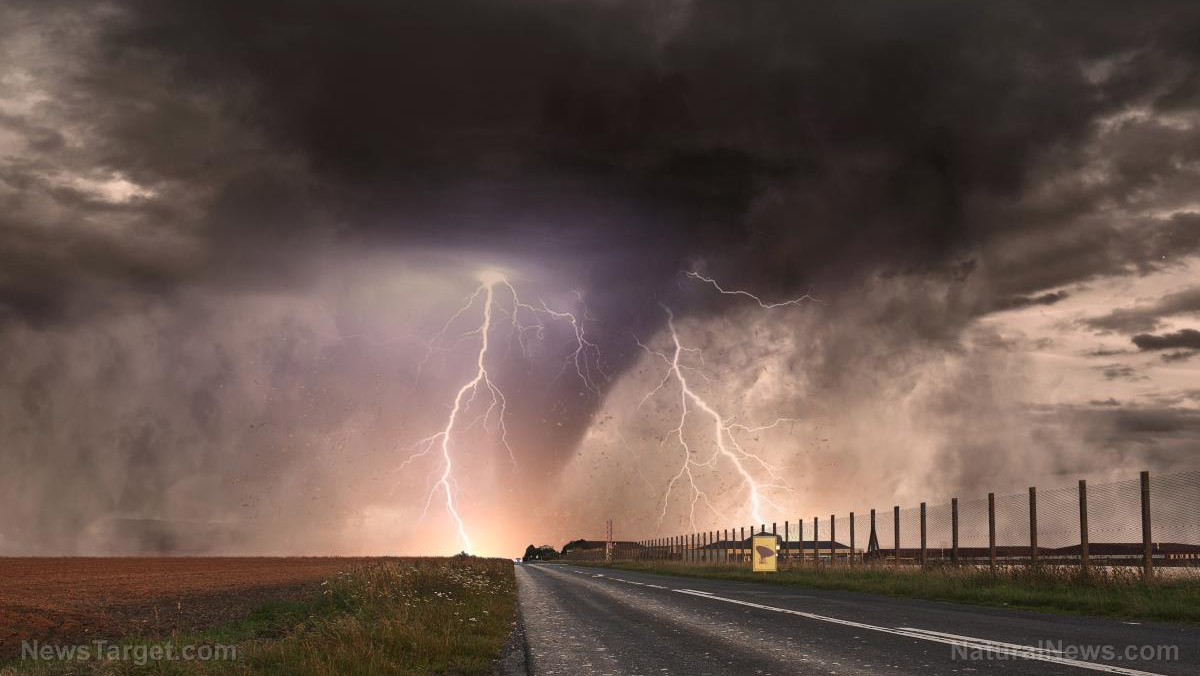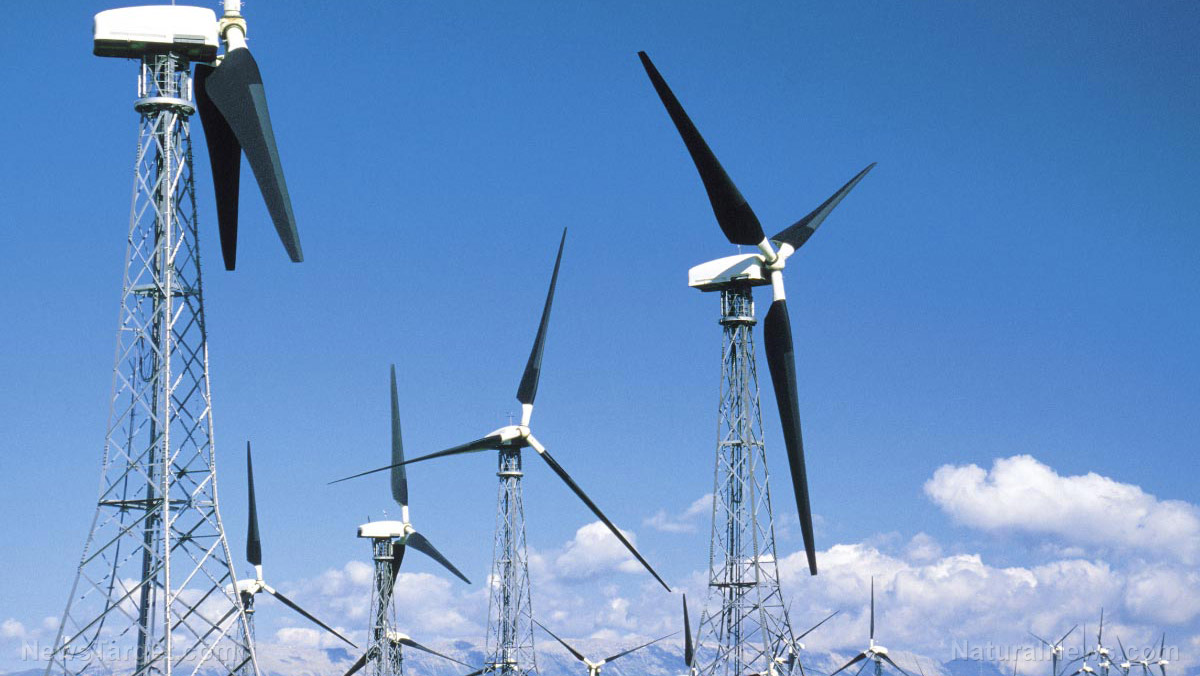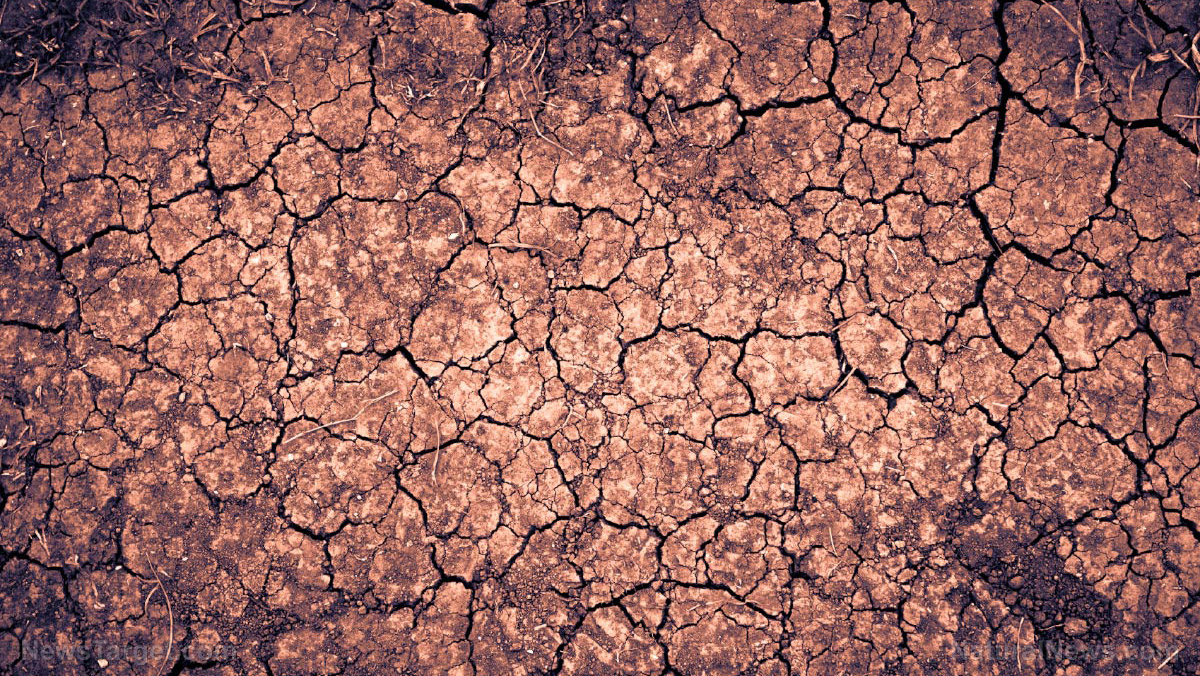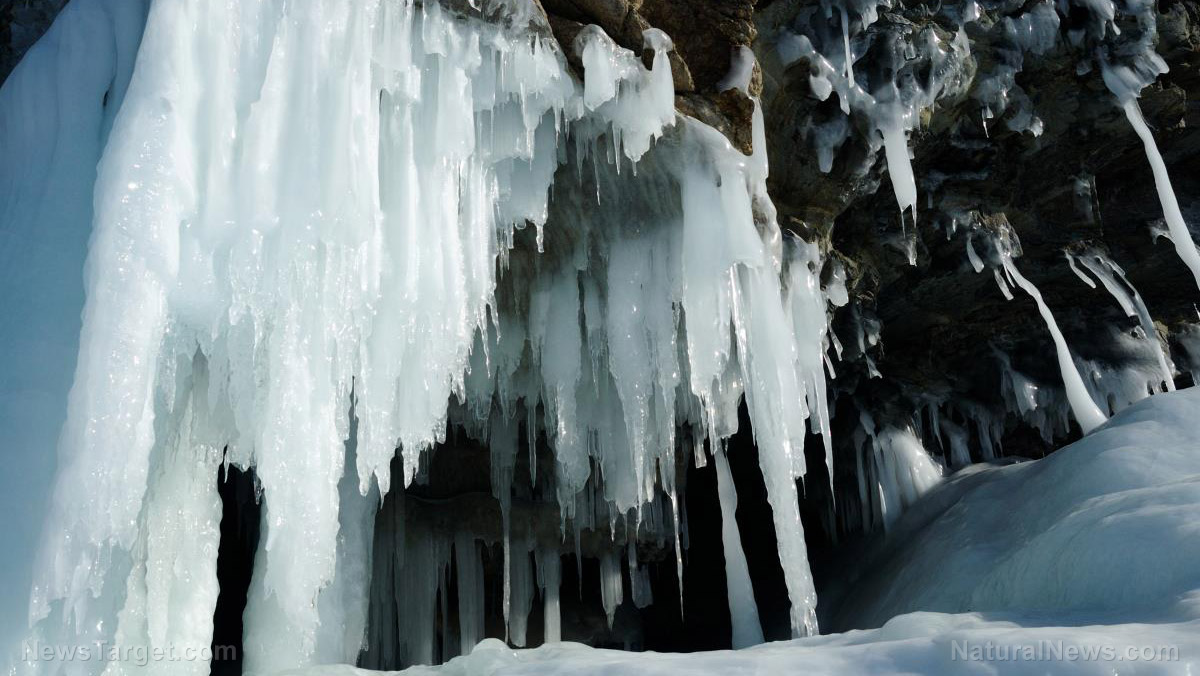Surviving natural disasters: How to prepare for 5 extreme weather events
01/10/2023 / By Zoey Sky

Preppers know that extreme weather should be taken seriously, especially if they live in a state that is often subjected to bad weather. While they may be used to natural disasters common in their state, others they have yet to encounter may still pose a threat.
Read on for tips on how to prepare for extreme weather events like blizzards and tornadoes. (h/t to Survivopedia.com)
Before disaster strikes, make sure you have the following supplies in your stockpile:
- Bleach
- Bottled water
- Canned food (Fruits, vegetables, meat, etc.)
- Cooking equipment and utensils
- Cooking oils
- First aid kit
- Hygiene supplies
- Multivitamins
- Protein bars
- Spices
- Water filters
Blizzards
Blizzards come with intense snowstorms that sometimes occur in winter. During this time, you may also experience power outages.
You should stock up on supplies in case you lose power.
Gather candles
Flashlights are ideal compared to candles, but the latter can also help you stay warm when dealing with a blizzard. Don’t leave candles unsupervised if there are children or pets in your house.
If you stock up on candles, make sure you also have lighters and matches.
Designate one room to stay in
If you are dealing with a power outage after a blizzard, designate one room in your home where everyone will stay for the next few days.
Having everyone stay in one place will help draw warmth to that area. Seal off the rest of your home and stock the room you chose with blankets and candles.
Wear season-appropriate clothing
If snow builds up on your property, wear the right clothing so you can safely shovel sidewalks and your driveway. If you have to leave your house, carry salt or sand to throw on the ground so you don’t slip on ice. (Related: Survival 101: 5 Reasons to set up a safe room or storm shelter.)

Dust storms
Those in the southwestern states may be familiar with dust storms, but they can happen anywhere in the U.S. so you should always be prepared. The remnants of thunderstorms or small tornadoes can create dust storms, especially in dry locations.
Stay indoors
If you can stay indoors, do so. Inhaling dust can cause health issues, especially in large quantities.
Before the dust storm arrives, prepare everything you need. If you have a dog, try to limit your time outdoors.
Stock up on facial coverings
Dust storms can cause dust to spread all over your home. If you have to go outside to buy supplies, wear the right facial coverings and wear goggles to protect your eyes from the grit flying around.
Floods
Floods can require bugging out if the weather is too bad, but if you think the water won’t reach your home it may be safer to stay indoors.
Monitor the water levels
Watch from your windows and keep an eye on the rising water level. If you’ve been through floods before, you should know how much you can handle.
Get to high ground
If you think the floodwaters can damage your home, find shelter on higher ground and move as soon as you can. Bring your bug-out bags and bring enough supplies in your car if you can drive safely.
If you don’t think you have to evacuate your home, monitor the news to see if evacuation orders end up being issued and have a safe place in mind to go if that order comes.
Hurricanes
Hurricanes are dangerous natural disasters that are common along the coast, but they can also strike many miles inland.
Find shelter
Hurricanes bring strong winds and rain that can cause damage to your home. If you are worried about your windows, board them up in case the glass shatters.
Evacuate when needed
Depending on the category of the storm, you may have to leave your home.
Tune in to the news so you can prepare ahead of time if you have to evacuate. If you plan to bug out bring supplies for your pets too.
Don’t expose yourself to contaminated water
Contaminated hurricane water can cause diseases, so don’t wade in the water unless absolutely necessary. You can avoid floodwater if you have an emergency flotation device.
Tornadoes
Tornadoes strike when conditions are windy enough and they can be devastating.
Head to lower ground
The safest place to be during a tornado is on the ground floor of the building you are in. If you don’t have a basement or you live in an apartment complex, seek shelter in a parking deck or a hallway.
If you can’t get somewhere lower, cover your head and protect your body with something sturdy to prevent injuries when the weather gets worse.
Have a detailed emergency plan
Even if you haven’t experienced a disaster within the last year, you need to run drills regularly to test your plans. Drills will also help ensure that everyone knows what to do and where to go when SHTF.
Keep a safe box of survival supplies
If you don’t have a spare room for your survival stockpile, keep a sturdy box with essential supplies. The box should include a first-aid kit, non-perishable foods and other supplies you will need during a tornado.
Keep a copy of your important contacts in one place so you can easily access them after the storm passes.
Visit Survival.news for more tips on how to prepare for common survival scenarios.
Watch the video below for some hurricane prep tips.
This video is from the Anarchy Land channel on Brighteon.com.
More related stories:
Emergency preparedness: Designing a natural disaster-proof home.
How to protect your homestead when these natural disasters hit.
Surviving a massive power outage.
Sources include:
Submit a correction >>
Tagged Under:
blizzards, chaos, Climate, Collapse, disaster, dust storm, environment, flood, homesteading, how-to, hurricane, natural disasters, off grid, panic, preparedness, prepper, prepping, storm, survival, tips, tornadoes, weather terrorism
This article may contain statements that reflect the opinion of the author





















